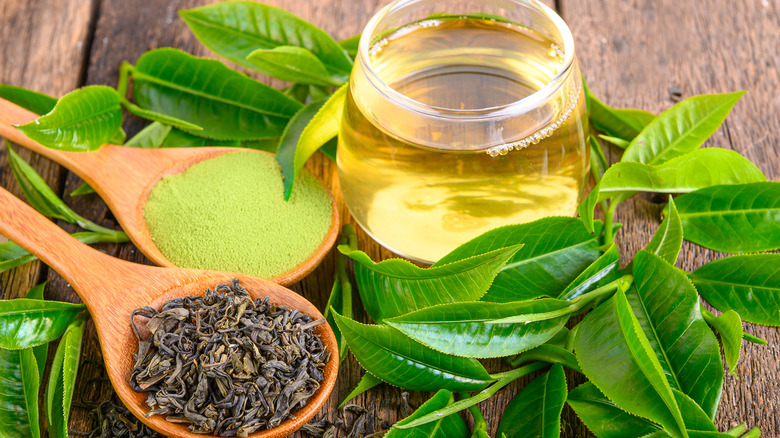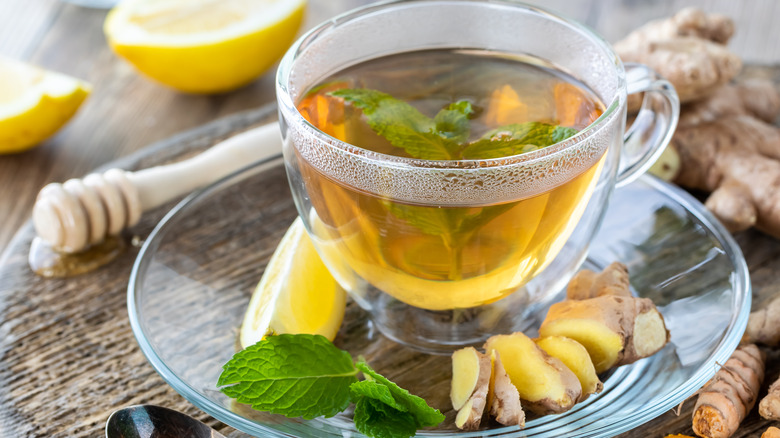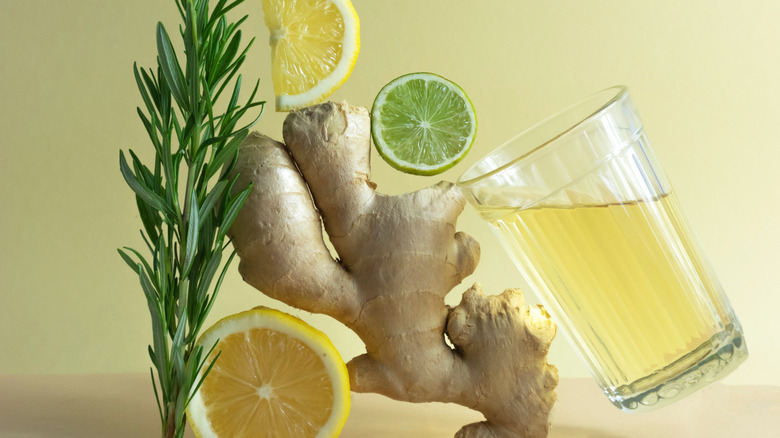The Real Reason Green Tea Might Make You Nauseated
Chances are you have heard of the many health benefits of green tea. According to GoodRx Health, green tea is made from the dried leaves and buds of Camellia sinensis, a tree largely grown in East and Southeast Asian countries. Unlike oolong and black tea, green tea is not fermented, which affects the way it tastes, looks, and smells.
Health gurus love green tea thanks to its nutrient profile and abundance of antioxidants, which feature a concentrated amount of polyphenols such as phenolic acids, flavonoids, and tannins (via Medical News Today). According to Healthline, drinking green tea daily may assist in weight loss, improve brain function, reduce the risk of cardiovascular disease, and even ward off bad breath.
This tea is also extremely versatile and can be served hot, cold, or frozen, as in a Starbucks Green Tea Frappucino. Additionally, it contains everyone's favorite stimulant — caffeine! And while it can be a superior choice to soda, it doesn't necessarily mean it's everyone's cup of tea.
The tannins in green tea can cause stomach upset
Health benefits aside, green tea can make some feel queasy after consumption. Dr. Jerry Bailey, a certified nutritionist and functional medicine physician, told Medical News Today that gastrointestinal issues are some of the most common side effects of drinking the tea. Nausea, being the biggest complaint, can kick in right after drinking a cup, especially if consumed on an empty stomach. Dr. Bailey shares that the tannins are to blame.
Tannins are a double-edged sword because they can help improve your health, yet a concentrated amount can cause unwanted ailments. "If green tea is brewed too strongly or consumed on an empty stomach, these tannins increase dramatically, which in turn, increases the amount of acid production in your stomach," Dr. Bailey explained. A spike in excess acid can result in a range of digestive issues including stomach irritation, constipation, acid reflux, and nausea.
Luckily, Dr. Bailey reports that there are ways around this.
Try green tea after a meal
If you love green tea but cringe at how you might feel after drinking it, there are some preventative measures you can take to help keep nausea at bay.
Dr. Jerry Bailey reports that eating beforehand is the number one way to prevent feeling sick after consuming green tea (Medical News Today). He notes that snacking while drinking a cup of green tea will also help, as having some food in your system can ward off the tannins and minimize discomfort. Additionally, you can try brewing the tea at a cooler temperature, ideally between 160 and 180 degrees Fahrenheit.
Dr. Bailey doesn't recommend green tea for those with a history of acid reflux, stomach ulcers, or other digestive issues as it may make symptoms worse. Of course, it's best to speak with a doctor if you're unsure or concerned.
If you're put off by the bitter taste of green tea, but want to make it a staple in your diet, you can try adding lemon, ginger, or honey to alter the flavor.


